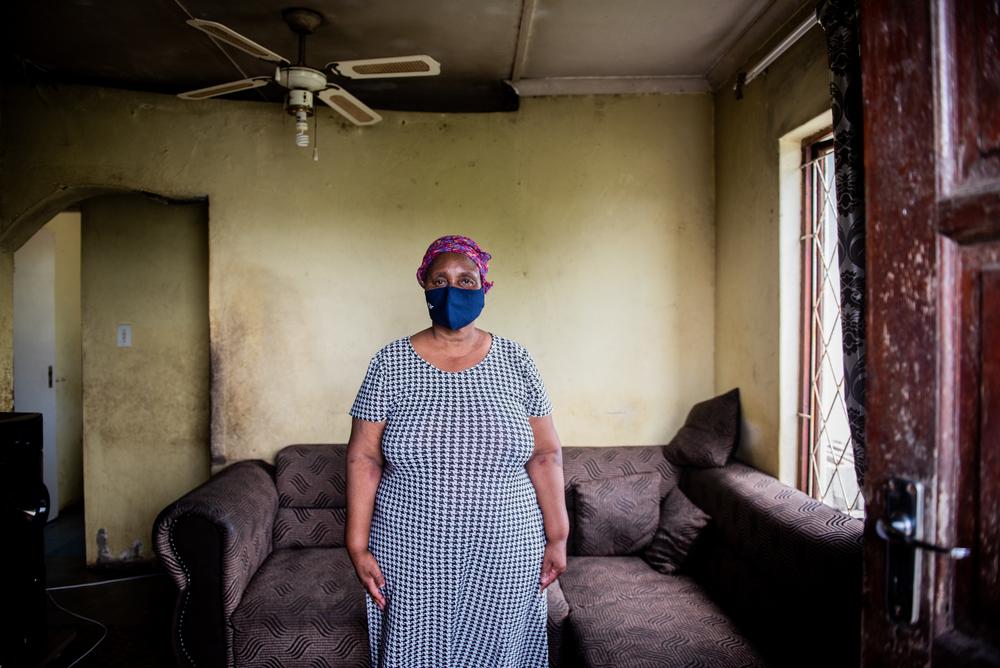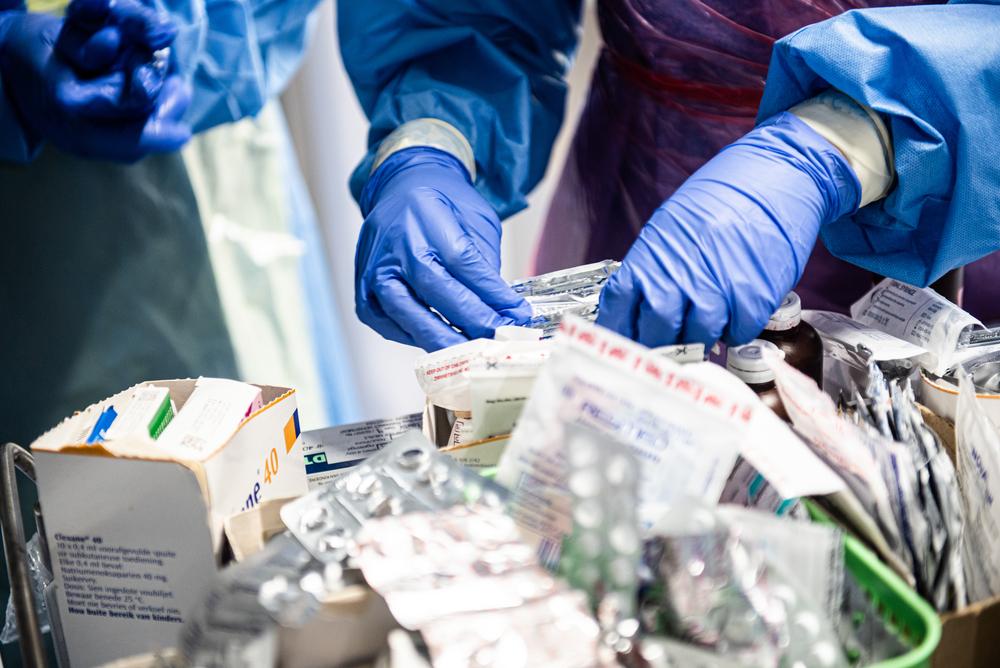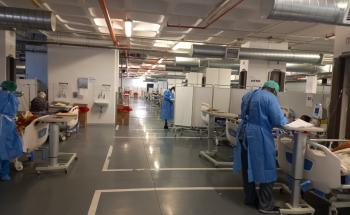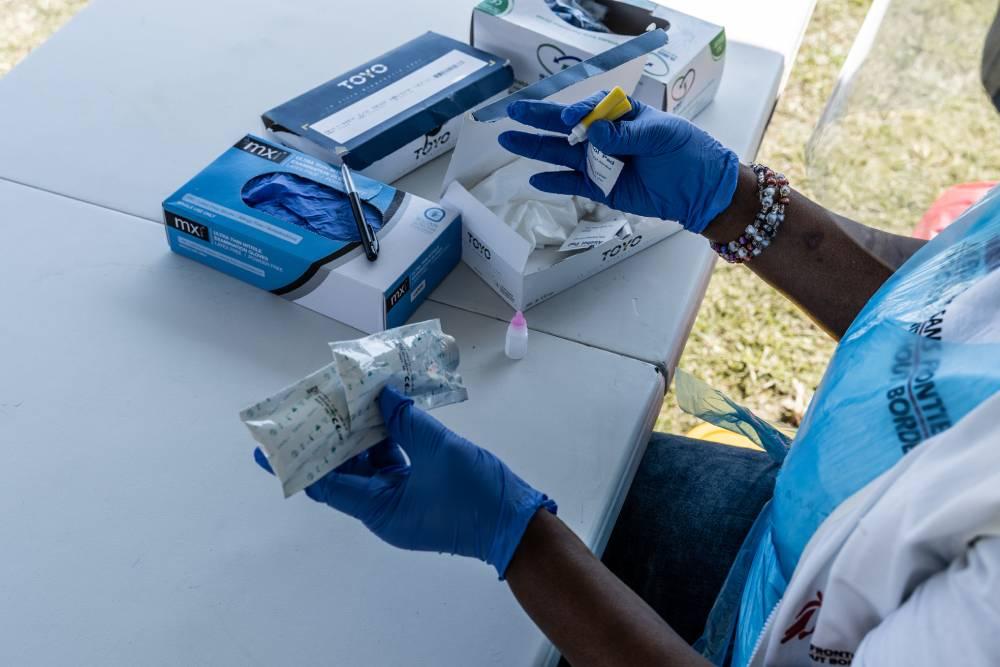Mpilo Luthuli, an MSF enrolled nurse, has worked in COVID-19 wards in three provinces
“On my first day on the job at Livingstone Hospital I was working in the trauma unit, and it was so disheartening to see so many people in need of help, there was equipment that had been provided in abundance, yet it still wasn’t enough for the amount of people who needed help with COVID-19.
I witnessed a lot of people losing their lives within the first day. The Livingstone staff were great, they did not make us feel like outsiders. A situation that made me emotional there was seeing a university student die from COVID-19 right before my eyes, yet this person had walked in seeming fine and had only complained about having shortness of breath.
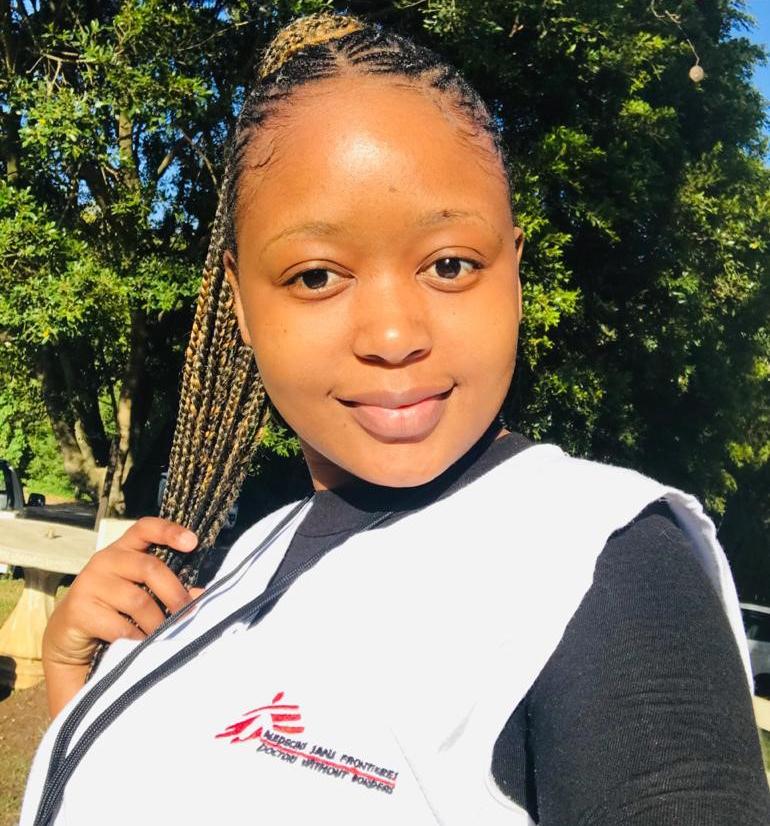
Seeing someone deteriorate and die so rapidly was a shock but there were some inspiring times – days when very sick patients who had been denied ICU care because they were too old, or had comorbidities, recovered in our care, and left us inspiring letters or drawings.
In December 2020, I was deployed to Dora Nginza Hospital on the outskirts of Gqeberha, and it was a bit of a different experience as they were very short on staff. We tried our best to make up for that but it made things a whole lot harder. I cried on my first day there because it was disheartening to want to work to the best of my abilities and help people, yet having to accept the fact that I can only do so much.”
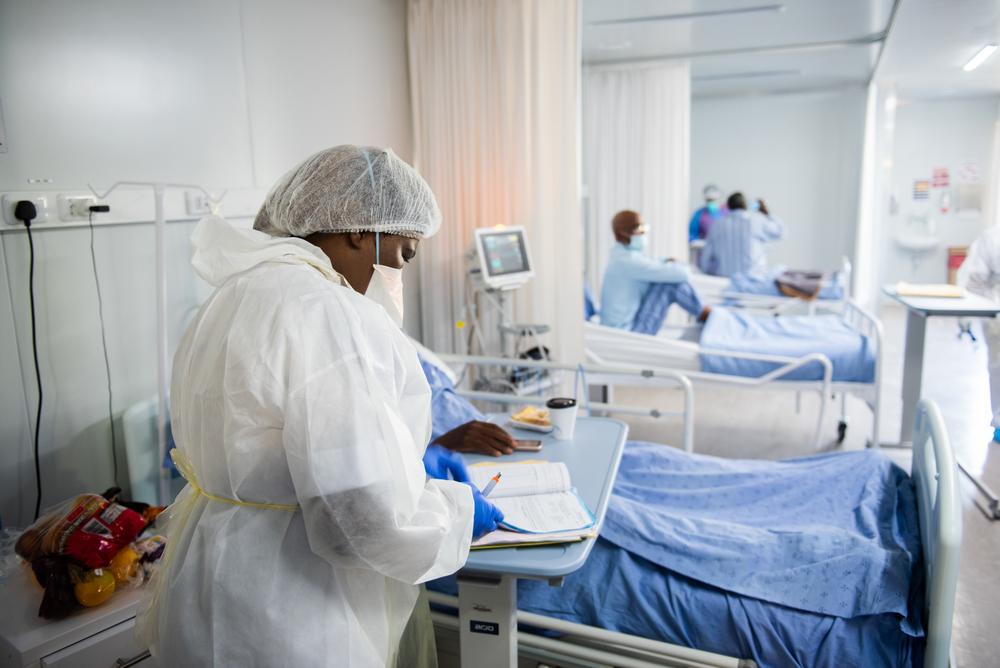
Phakamane Mtuli a lay health worker who was employed as a general orderly in Ngwelezana Field Hospital
"I saw an ad in the paper and I applied. I knew it was a COVID-19 ward and as much as it was scary, I told myself if I can do one thing that can change a person's life, or make someone happy, I'll sleep well at night. This was my mission. I'm not a doctor, I cannot give life to a person, but I can assist. A small thing that I can do that can make a person happy, I will do it. In terms of my well-being, in order for me to help the next person my personal safety comes first: that was my motto every day. It has been a great journey, challenging, but not scary, you know, you need to have a positive attitude towards people and towards COVID-19, you know, as many survive."
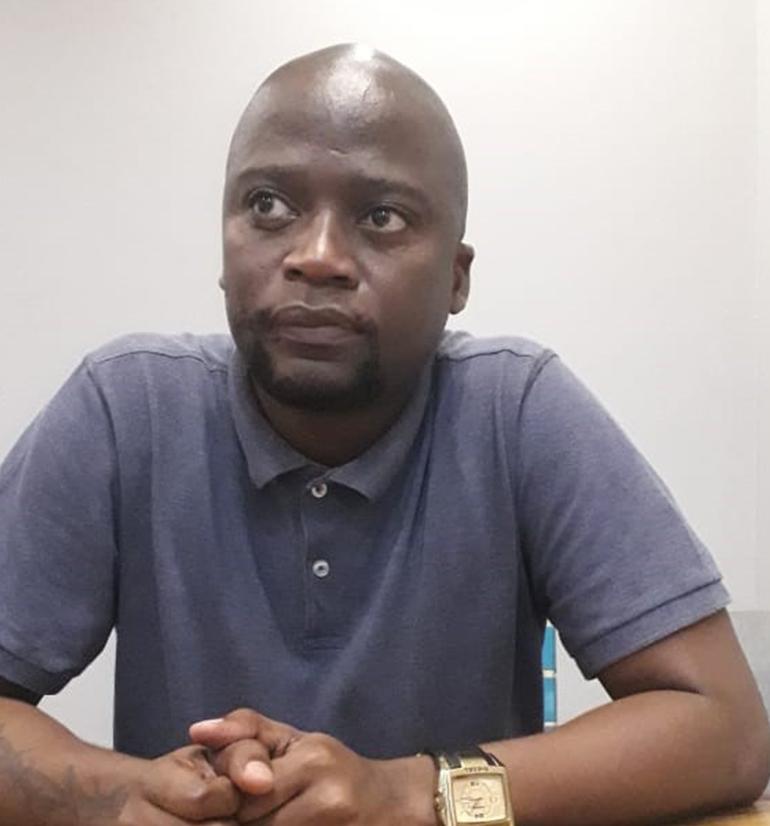
Dr Manny Thandrayen, MSF medical activities manager in Ngwelezana Field Hospital
“The first thing that struck me when I joined the MSF team was the fact that the Department of Health had agreed to collaborate with a non-governmental partner on the COVID-19 response - I have worked in senior management positions in public hospitals for many years, and I can tell you this is rare.
These public-private partnerships are much needed, however, given how COVID-19 has tended overwhelm already very stressed facilities across the country. Leaders in medical NGOs and their counterparts in government need to find ways to collaborate efficiently, and in a timely manner. When MSF arrived at Ngwelezana it was already the peak, which limited the potential impact. How do we ensure that the right partnerships are in place weeks before, in order to save the maximum number of lives? This is an important question.”
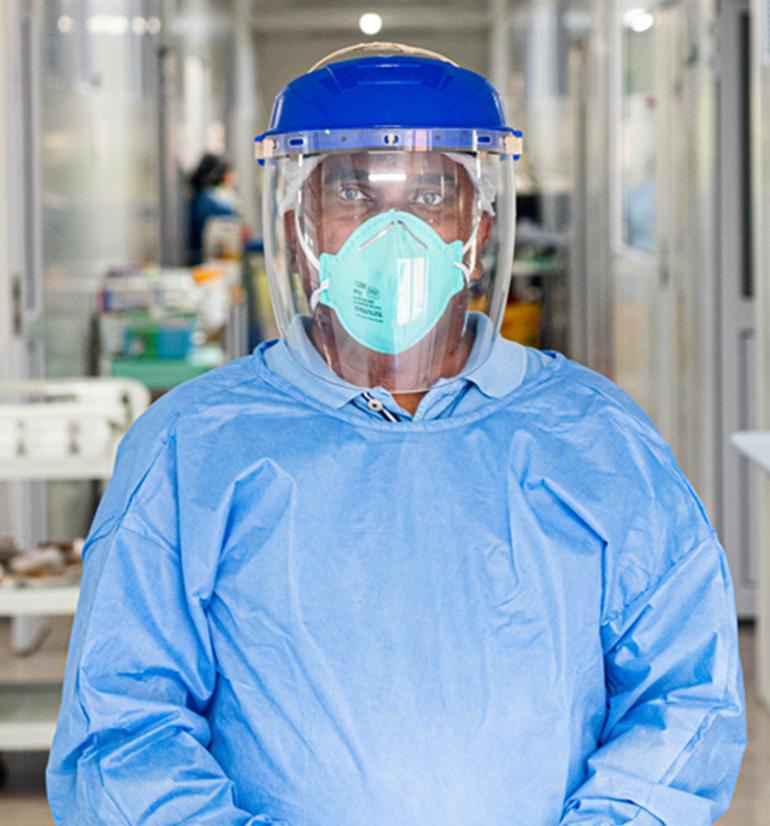
Josias Madela, discharged from Ngwelezana Field hospital in late January 2021
“I was showering and the next thing I fell, and my family rushed me to hospital. I was asked questions about my health and then they gave me a bed and tested for COVID-19. I lost my eyesight years ago but every process was explained, and this calmed me. When the result was positive I was moved a short distance to a COVID-19 place [Ngwelezana Field Hospital], which I must say I enjoyed. I was looked after, nobody shouted at me or the other patients, such that I would go back anytime.”
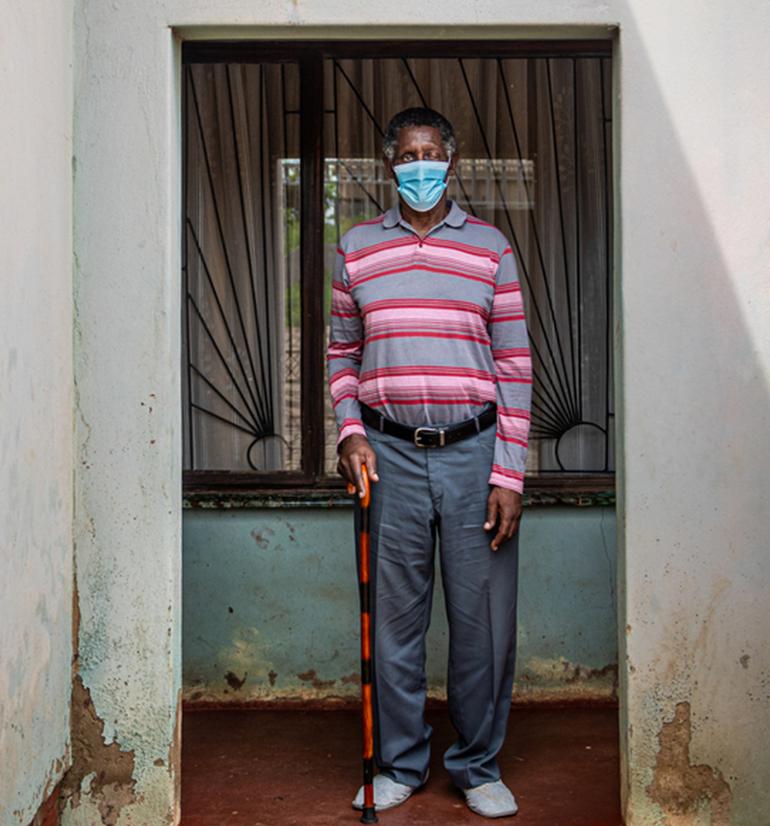
Thembani Hleleni discharged from Ngwelezana Field Hospital in early February
“I started to lose appetite and I was sleeping all the time, so I went to the hospital, where a doctor said I have COVID-19 symptoms and gave me a letter to be admitted. I was tested, and when the results came back positive I was transferred to Ward C, and then to the field hospital. I was very worried, my mind wandering all over, but the ambulance transfer was smooth and the nurses both in Ward C and the field hospital were nice to me.
When it came time for my discharge, the doctor (Dr Madala, a member of the MSF team) examined me and noticed that I had developed a kidney infection. I stayed another week. I am so grateful this was picked up because I might have returned home perhaps just to die. Since I am home my condition has improved quickly, I feel well now.”
